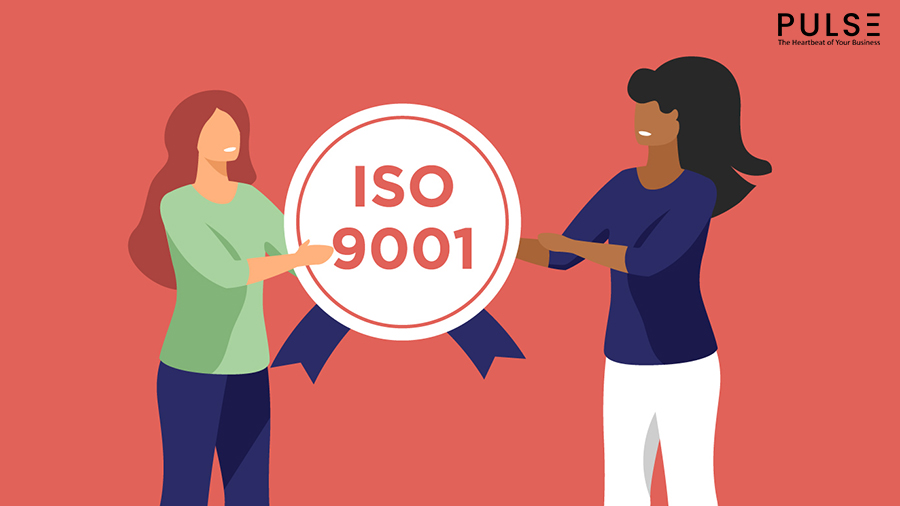For any business owner, ISO 9001 can be a game-changer. Quality Management System is a valuable tool for improving your company’s operations and quality management system, and it’s too critical to pass on in this day and age!
The International Organization for Standards incorporated the ISO 9000 protocols through global consensus. Regardless of its field of activity, any organization, large or small, can use it. In reality, ISO 9001 certification is held by over one million businesses and organizations in over 170 countries.
These protocols aim to tear down barriers to international trade. ISO 9001 (Quality), ISO 14001 (Environment), and ISO 27001 (Information Security) are some of the most well-known standards.
The most recent version of the quality standard, ISO 9001:2015, was included to ensure regulatory compliance and customer satisfaction through continuous quality system improvement.
Therefore, if you, as a business, seek to attain the next level of growth, it is ubiquitous to communicate the ethos of trust, business-best practices, quality, and compliance to your customers and stakeholders. ISO 9001 helps you attain just that!
What is a Quality Management System?
Because ISO 9001 is a quality management system, it’s crucial to understand what a quality management system entails. A quality management system is a formula-based system that maintains track of various company operations, quality regulations, and how the organization will comply.
What is ISO 9001:2015?
ISO 9001 is the world’s most generally recognized Quality Management System (QMS) standard, and ISO 90001:2015 is the most recent protocol version.
The International Organization for Standardization (ISO) has set standards to protect society against potential errors for more than half a century. The Quality Management System standards paradigm, the ISO 9001, has been around for more than three decades.
Its mission is to help companies better satisfy customers’ and other stakeholders’ needs. This is accomplished by putting in a system to ensure that goods and/or services are of high quality.
This standard is based on seven principles of quality management:
1) A focus on the customer.
2) Leadership.
3) Employee Engagement.
4) Approach to the Process.
5) Improvement.
6) Making decisions based on evidence.
7) Relationship management.
How Businesses Benefit From ISO 9001 Certification?

When you hear about these distinct aspects of ISO 9001, it’s natural to be frightened and think it’ll be a time-consuming and challenging process. However, ISO 9001 truly strives to provide your firm with a relatively primary method of quality compliance.
With ISO 9001, you can find a system that enhances all of your organization’s many areas and departments if adopted and handled correctly.
1) Increased revenue: Capitalising on ISO 9001’s reputation can help you win more tenders and contracts while improving efficiency improves customer happiness and retention.
2) Improvement of business credibility: When companies seek new suppliers, having a QMS based on ISO 9001 is generally essential, especially in the public sector.
3) Increased customer satisfaction: Following this QMS protocol inherently nurtures the ability to supply products and services by better understanding your customers’ wants and decreasing faults.
4) Higher operational efficiency: You can cut expenses by implementing industry best practices and focusing on quality following the ISO 9001 standards.
5) Improved decision-making: With ISO protocol in place, you’re better positioned to notice and identify problems early on, allowing you to take actions to prevent making the same mistakes again rapidly.
6) Increased staff engagement: Improved internal communications ensure that everyone is on the same page. Employees are happier and more productive when included in the process improvement design.
7) Better integration of process: Analyzing process interactions, as included in the protocol, makes it easier to uncover efficiency improvements, decrease errors, and save money.
8) Culture of continuous improvement: Following ISO protocol shows you’ve implemented a systematic approach to finding and pursuing possibilities for improvement.
9) Improved supplier relationships: Using best- practices lead to more efficient supply chains, and ISO 9001 certification signals this to your vendors.
How Will Customers Benefit From ISO 9001 Certification?
The ISO 9001:2015 standard is internationally recognized, and your clients will realize the advantages of dealing with ISO 9001-certified businesses.
For instance, some of your consumers will only transact with ISO-accredited orgs since it ensures that your management processes are continually evaluated and authorized.
Working with ISO 9001:2015 certified organizations has several advantages that ultimately benefits your buyers:
- Errors are minimized.
- Reporting and communication are improved.
- Product and service of higher quality.
- Production scheduling and delivery that is more reliable.
- Annual assessments ensure that standards are maintained.
How Can Pulse Help You?
Pulse is a substitute for iAuditor that allows you to create digital checklists and perform important compliance and management activities to satisfy quality management standards and procedures.
Pulse’s user-friendly, cloud-based business process management software system can help your company better align people and actions with strategic plans, risk and compliance management, recruiting, onboarding, training, and managing employees. These paradigms ultimately allow your company to achieve greater productivity, quality, and profitability goals.
You can achieve greater heights by revamping your business operations and sticking to industry norms. Pulse is currently available for a free 30-day trial; so before you believe in what we say, check it out for yourself now!
